Next on Episode 5 | Water
Sanjayan explores humankind’s relationship with the Earth’s most important resource: water. Unraveling dramatic connections between fresh water and the health of the planet, he uncovers spectacular wildlife stories that center on managing the natural pulse of the planet’s water.
Extras + Features
-

An Interview with Renowned Shark Scientist Doc Gruber
S1 E4 - 2m 51s
Doc Gruber is a shark biologist and founder of the American Elasmobranch Society. Doc Gruber is a recognized authority on shark science. He has specialized in shark behavior, anatomy, sensory systems and tracking. Gruber is perhaps best known for his studies on habitat selection and homing behavior of lemon sharks and eagle rays around the Bimini Shark Lab.
-
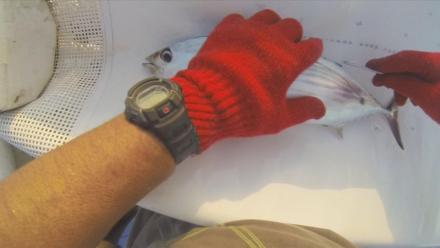
Tuna Is Tagged in Papua New Guinea
S1 E4 - 2m 10s
On a month-long mission in the Solomon Sea, a team aims to tag as many Skipjack Tuna as possible to find out where they go and various unknown elements of Tuna life history. All the data will help to know where in the ocean to protect.
-
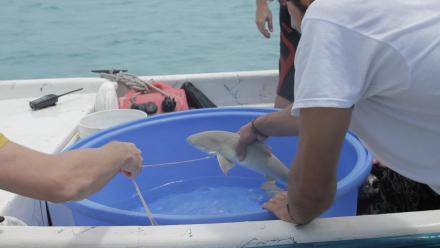
Student Scientists Tag a Baby Lemon Shark
S1 E4 - 2m 31s
Just after birth, the newborn lemon sharks are measured, tagged and a DNA sample is taken before the young sharks are returned to the mangroves. This provides information to an ongoing database to back up theories that lemon sharks return to the same location they were born to give birth themselves.
-
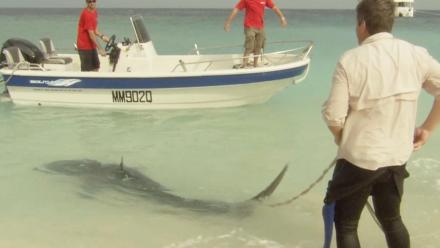
Shark Scientist Richard Fitzpatrick Tags a Tiger Shark
S1 E4 - 2m 15s
Using ‘the claw’ that Richard Fitzpatrick designed with knowledge of tonic immobility, he manages to tag a dangerous man-eating tiger shark. Information from the tags in helping to create a better understanding of the annual movement of the predators.
-
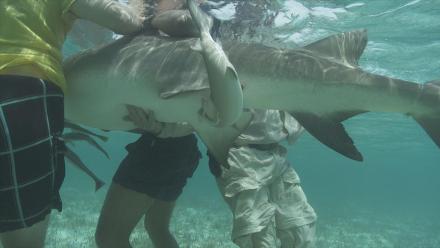
Lemon Shark Birth in Bimini, Bahamas
S1 E4 - 1m 35s
Renowned shark scientist Doc Gruber is midwife to a 10-foot lemon shark female and helps her to deliver several shark pups.
-

Our Breathing Planet
S1 E3 - 44s
Satellite footage from NASA has revealed how the planet breathes in annual pulses in time with the seasons. And surprisingly the breathing isn’t driven by the tropical forests as would be expected; it’s the great northern forests that are the real lungs. Video courtesy of NASA, graphic ©NASA/JPL-Caltech.
-

Traditional Heiltsuk Herring Egg Harvest Using Hemlock
S1 E3 - 2m 45s
Jordan Wilson, a man from Heiltsuk descent, reveals the traditional methods of harvesting herring eggs, using hemlock branches. The Heiltsuk sustainable herring fishery has used this traditional process, passed down from ancestors for generations to maximize the yield of herring eggs at spawning time.
-

Elephant Conflict
S1 E3 - 1m 32s
Journey deep into the great forests of Earth for a new way of looking at these wild places and the animals that live there. Dr. M. Sanjayan travels to Sumatra and finds frightening elephant battles are exploding on the edge of the forest.
-
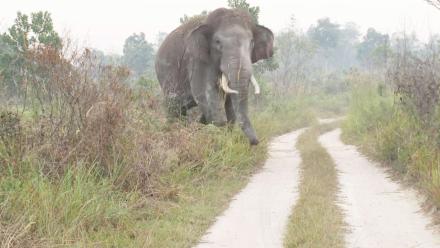
Human and Elephant Conflict in Sumatra
S1 E3 - 1m 50s
In Sumatra, elephant populations are rapidly decreasing. Their decline is primarily a result of deforestation, leaving only 29% of the island still habitable for elephants, leaving them in isolated patches close to humans. The relationship is tense and all — out war between human and elephant is becoming a regular occurrence, often ending in the loss of lives to both.
-

Timelapse of Budding Sitka and Hemlock Plants
S1 E3 - 1m 25s
Over the course of the spring and summer, two of the most common trees in the northern forests of the planet, ‘breathe’ out oxygen into the atmosphere and ‘breathe’ in carbon dioxide. This clip shows the pulse of life in action as these plants bud.
-

How to Be a Mahout
S1 E3 - 1m 48s
The relationship between a mahout and their elephant is very personal. Often they know the elephant from when they were babies and have to train them and care for their everyday needs such as feeding and washing. In their job as elephant carers and trainers and will always put the elephant before themselves – it is more important that the elephants are fed than the mahouts are fed!
-
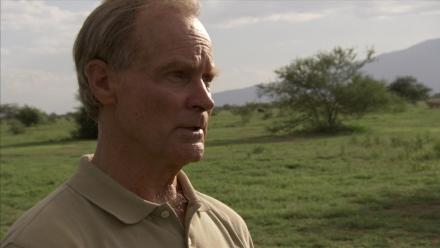
Why Cows Are Important
S1 E2 - 3m 25s
Renowned conservationist Jonah Western believes that Maasai grazing their herds of cattle is essential for a healthy functioning savannah and therefore increases populations of endangered lions. In an interview with Jonah, Sanjayan learns how man and lion can not only co-exist but thrive.
PBS PASSPORT
Stream tens of thousands of hours of your PBS and local favorites with WETA+ and PBS Passport whenever and wherever you want. Catch up on a single episode or binge-watch full seasons before they air on TV.
Similar Shows

PBS Space Time
Science and Nature

Breakthrough Women in Science & Medicine: Dr. Fatima Cody Stanford
Science and Nature
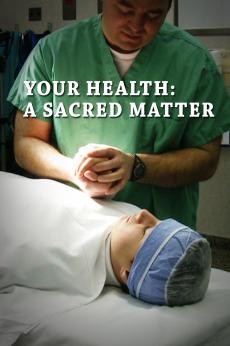
Your Health: A Sacred Matter
Science and Nature

Make48
Science and Nature

When Whales Walked: Journeys in Deep Time
Science and Nature

Elemental: Reimagine Wildfire
Science and Nature

Listen to the Universe
Science and Nature
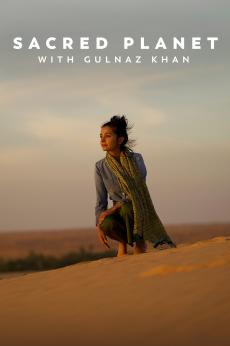
Sacred Planet with Gulnaz Khan
Science and Nature
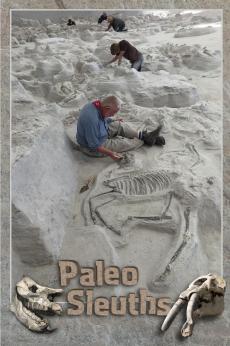
Paleo Sleuths
Science and Nature

Outback
Science and Nature